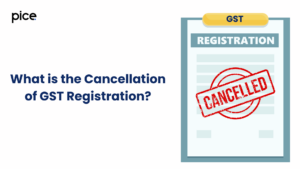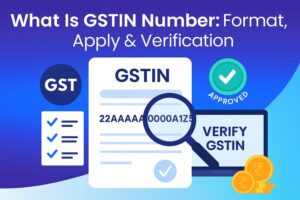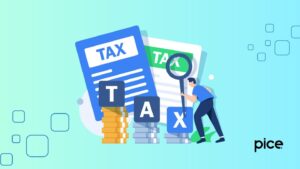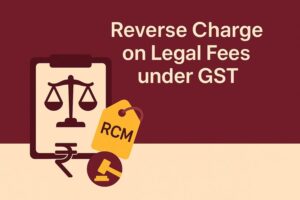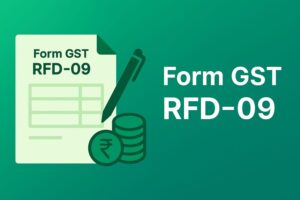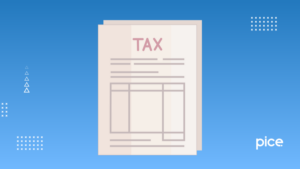Exempted Services Under GST
- 16 Dec 24
- 13 mins
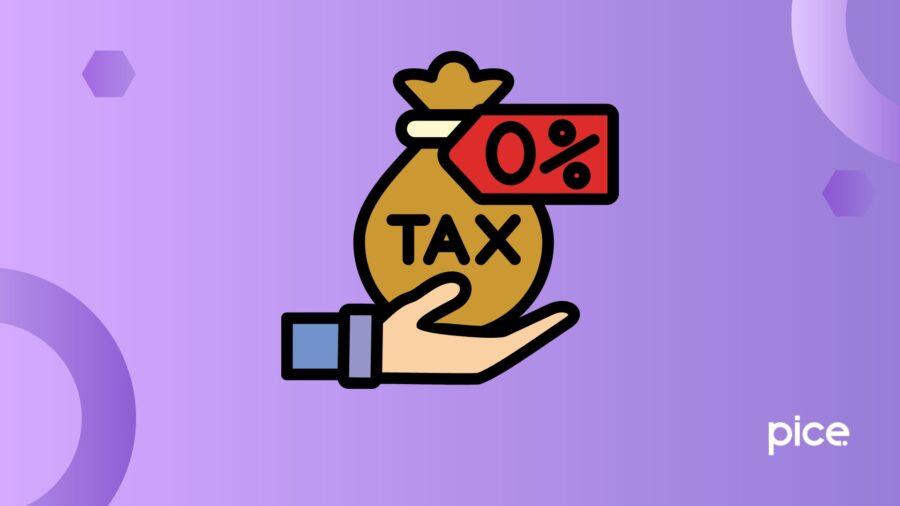
Exempted Services Under GST
- What is an Exempt Supply?
- Classification of Exemptions
- Types of Exemptions
- Exemption Under One GST Law and the Effect on Another GST Law
- Treatment of ITC When Supply is Exempt
- What is a Non-Taxable Supply?
- Understanding the Negative List in GST
- Difference Between Nil Rated, Exempt, Zero Rated and Non-GST Supplies
- What Are the Reasons for Exemption Under GST?
- How to Calculate Credit Allocation for Exempt Supplies?
- The Bottom Line
Key Takeaways
- Exempt supplies include nil-rated (0% GST), fully/partially exempted, and non-GST supplies, such as basic food items, healthcare, and agricultural products.
- Absolute exemptions require no conditions, while conditional exemptions depend on specific criteria like export under LUT or cost thresholds for services.
- Input Tax Credit (ITC) is not available for exempt and non-GST supplies, and businesses must reverse ITC associated with such supplies.
- Non-GST supplies, like alcohol for human consumption, petroleum products, and natural gas, fall outside the purview of GST.
- Exemptions aim to simplify tax compliance, promote exports, support small enterprises, and encourage growth in agriculture, healthcare, and public welfare sectors.
While evaluating the net outstanding tax liability, it is crucial to determine whether a supply is exempt under the GST law. As the scope of taxable supplies widened, the GST Council has now clearly defined all the Exemptions.
For regular taxpayers, knowing the implications of items in the GST Exemption list is very important. It helps tackle specific conditions like reversing the Input Tax Credit or ITC. Additionally, what has been declared Nil-rated at present may incur high tax rates moving forward. Therefore, a proper understanding of the classifications like Nil-rated, Zero-rated and Non-GST supplies is necessary.
We suggest you go through this comprehensive guide to fetch the entire list of exempted services under GST.
What is an Exempt Supply?
Exempt supplies cover three types of supplies altogether. These include:
- Supplies that are held nil-rated or taxed at a ‘NIL’ rate (0% tax)
- Supplies which are either partially or fully exempted from CGST or IGST via a notification superseding Section 11 (in case of CGST Act) or Section 6 (for IGST Act)
- Non-taxable supplies as mentioned in Section 2(78). These supplies do not come under the GST law (including alcoholic liquor for human consumption, electricity, petrol, diesel, etc.)
Any Input Tax Credit associated with the above-mentioned supplies will not be allowed for setoff. However, zero-rated services or products won't be taxed at a 0% GST rate when they are exported.
Both the Central and State Governments hold the right to grant exemptions under the GST law when:
- The exemption is supporting public interest.
- A prior notification has been issued.
- The GST Council has recommended the same.
- It is an exceptional situation where exemption has been provided via a special order (not through official notification).
- Registered person responsible for tax collection is not eligible to collect GST more than the effective rate. For such cases, the supplies enjoy absolute exemption.
- Absolute or conditional exemption has been announced for any service or group of services that match a particular criteria.
💡 If you want to pay your GST with Credit Card, then download Pice Business Payment App. Pice is the one stop app for all paying all your business expenses.
Classification of Exemptions
Two broad exemption categories exist:
- The supplier can be exempt regardless of the nature of their supplies.
An example of this is organisations that are involved in non-profit activities or public welfare.
- Specific supplies are exempt under the GST law. For exempted services under GST, a prior notification from the Council would be mandatory. After that, irrespective of the supplier the same benefit could be enjoyed by each registered taxpayer.
Services that facilitate public conveniences or services that involve sponsorship of a sports body attract this form of exemption.
Types of Exemptions
Three forms of GST exemptions may be noted:
- Absolute Exemptions
Under this type, exemptions are extended without any disputes. The distribution of electricity by a transmission service provider falls under this type.
Some other examples of absolute exemptions from registration are:
- Transportation of passengers offered by non-AC buses and trains
- Supply of essential items and electrical energy in residential complex and agricultural farm
- Education services extended by affiliated institutions up to the higher secondary level
- RBI-extended services
- Life insurance business
- Charitable purposes
- Selling of unprocessed agricultural products like fresh fruits and fresh vegetables, etc.
- Conditional Exemptions
Exemption under this is reliant on specific criteria.
A vital example of this can be healthcare facilities offered by a clinical establishment like the Intensive Care Unit (ICU) or Intensive Cardiac Care Unit (ICCU). However, to qualify for the exemption to health care services, the average room charges for that establishment should cost more than ₹5,000/ day.
Another valid instance for a conditional GST exemption arises when exporters claim an exemption under the Letter of Undertaking (LUT) route, provided they adhere to certain guidelines, such as non-receipt of export duty.
- Conditional Partial Exemptions
If a taxpayer who has undergone GST registration, receives any service from an unregistered person or in case of intra-state services, the registered individual will be exempted from tax payments from all or any of the services that do not exceed ₹5,000/day.
Exemption Under One GST Law and the Effect on Another GST Law
It must be noted that any exemption under the CGST Act won't be allowed for further deduction under the IGST Act. Simply put, if tax exemptions are allowed in interstate transactions for specific services then the same rules won't apply to intra-state transactions.
Treatment of ITC When Supply is Exempt
For exempt supplies (both services and products), the sum of credit associated with the exempt supplies has to be reversed.
If you are unsure about how to find the credit attributable to exempt supplies, we have presented a quick formula:
Tax credit for exempt services and products = (A/T) x C
In the above equation,
A = aggregate figure of exempt supplies (supplies left after disregarding zero-rated and taxable supplies)
T = Gross turnover of the registered individual during the particular taxation period
C = Common credit
| Common Credit | Total Input Tax for a Period |
|---|---|
| Less: | GST attributable specifically to non-business activities |
| Less: | GST attributable specifically to exempt supplies |
| Less: | Ineligible credits following Section 17(5) |
| Less: | Tax applicable particularly for taxable commodities and services (also includes zero-rated supplies) |
What is a Non-Taxable Supply?
Non-taxable supplies signify a supply of services or commodities or at times both that are not attributable to inward or outward taxation under the GST law. Nevertheless, to qualify as a 'supply' that is potentially 'non-taxable', first, it has to be defined under the GST Act.
Articles listed in Section 9(2) or Section III declare supplies that have been kept out of the scope of taxation under GST.
Here we have listed some commodities for which the GST rate has not been notified yet. However, that does not infer that they do not come under the GST realm.
- Aviation turbine fuel
- Natural gas
- Electricity transmission
- Motor spirit
- High-speed diesel
- Crude petroleum
- Motor vehicle petrol
Understanding the Negative List in GST
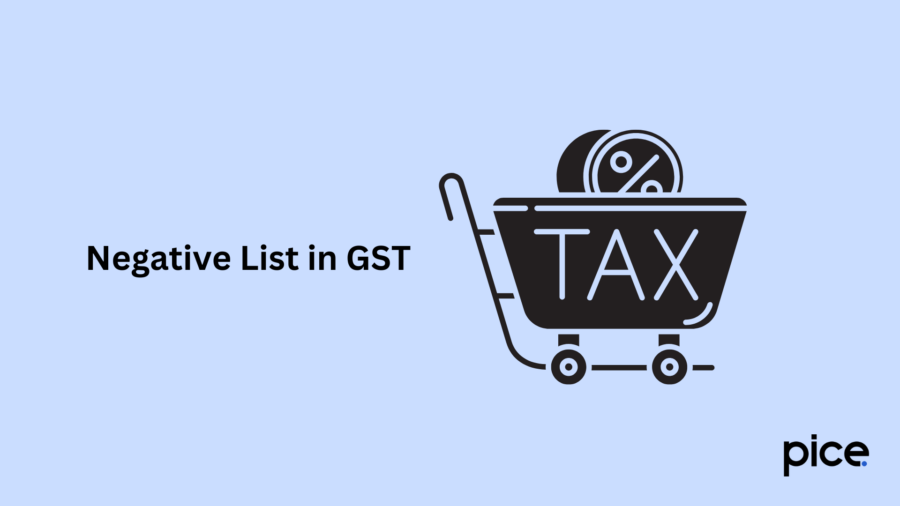
Under the GST Act, the negative list of supplies depicts items and services that have not been mentioned in Schedule III of the CGST Act. The detailed list covers:
- Agency services involving sale of land
- Supply of service in religious pilgrimage
- Clay lamps
- Agricultural machinery or resources to boost agricultural purposes
- Legal services offered by any Court or Arbitral Tribunal
- Mortuary, burial or funeral services
- Services by an employee towards their employer
- Duties by any individuals who hold a position in pursuance of the provisions of the Constitution in that capacity
- Sale of completed real estate
- Functions organised by the MLAs, MPs, etc.
Difference Between Nil Rated, Exempt, Zero Rated and Non-GST Supplies
If you are confused about the exempted services under GST, the following tabular representation will help understand the definitions of various forms of exempted supplies.
| Supply Type | Description |
|---|---|
| Zero Rated Supply | Exports deemed towards SEZs or SEZ developers |
| Nil Rated Supply | Items that have a prescribed 0% rate of tax. Includes grains, jaggery, salt, etc. |
| Exempt Supply | These supplies are taxable but do not come under the realm of GST. Also, the supplier cannot claim for ITC reversal for these supplies.Includes fresh fruits, fresh milk, curd, bread, organic manure, raw silk and other everyday items. |
| Non-GST Supply | Non-GST supplies are those that do not come under the purview of the GST law. Petrol, diesel and alcohol are some prominent examples. |
What Are the Reasons for Exemption Under GST?
As already mentioned explicitly, some items and services are exempted under the GST law for different reasons. Such decisions were taken to align with important policy goals, support vital socio-economic factors and facilitate administrative convenience.
Here you can learn about some common reasons for GST exemptions:
- Supporting Public Welfare
Keeping this point in mind, the GST Council has granted exemptions for societal welfare on day-to-day basic food items like wheat, rice, pasteurized milk, etc. Additionally, educational services, agro machinery and healthcare services also partially come under this category of exemption.
- Empowering Small Enterprises
The Government can judiciously allow conditions exemptions to promote an unregistered person or small businesses. In addition, this helps ease their GST compliance burden so that the companies can focus more on how to improve their aggregate turnover.
For instance, the Composition Scheme had been introduced in the first place to offer discounted GST rates to small enterprises with a limited annual turnover.
- Encouraging Exports
Under the GST Act, typically all exports are zero-rated. It directly infers that the exporter does not need to bear any outward tax liability for this service. This initiative proves to be beneficial in keeping exports highly competitive in the international market. Moreover, it checks the tax burden from negatively impacting overall export costs.
- Facilitating Interstate Trade
Several interstate supplies involving certain items may be totally exempt or taxed at discounted GST rates to promote business proceedings across state borders.
- Promoting Agriculture
The agricultural sector is one of the major pillars of the growing Indian economy. Therefore, to boost its growth and to open up new opportunities, the GST Council allows exempted services under GST for the agro sector.
- Streamlining Government Functions
Selected local authority services or functions planned by the State Government are not included in the purview of GST. Such types of exemptions help avoid double taxation and also simplify accounting procedures.
- Facilitating Financial Services
A handful of financial services like business loan interest, banking and life insurance services can be eligible for GST exemptions. However, there are several conditions that must align with the service policies.
- Respecting Cultural and Religious Ceremonies
Supplies having a religious significance or those meant for charitable activities or cultural usage may be considered tax-exempt to preserve cultural and social values.
- Simplifying Tax Processes
Certain GST exemptions on transactions involving unprocessed agricultural products, healthcare, education, government services, and essential goods are allowed to simplify tax calculations and reduce business compliance costs of essential sectors. It ensures affordability and public welfare. Additionally, businesses can easily navigate through the GST regulations.
- Managing Transition
While transitioning to GST, certain concessional rates and outright exemptions were granted to facilitate smoother incorporation of businesses within the new tax regime.
For business owners, understanding these nuances of GST exemption is vital to improving the financial standpoint of their businesses.
How to Calculate Credit Allocation for Exempt Supplies?
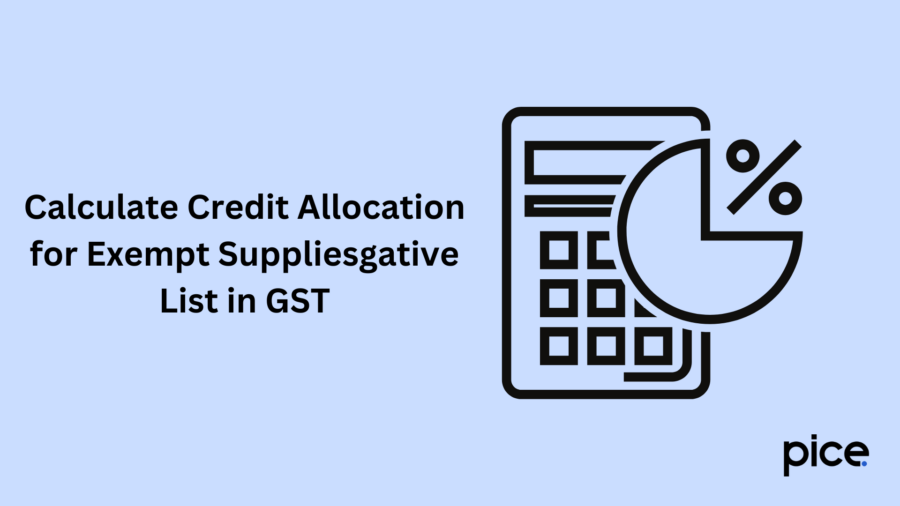
Under the Goods and Services Tax (GST) regime, businesses dealing with both taxable and exempt supplies must apportion the Input Tax Credit (ITC) accordingly. ITC is only allowed on taxable supplies, and the ITC for exempt supplies must be reversed.
Here's a step-by-step approach for calculating the credit allocation for exempt supplies:
Step 1: Identify Total ITC
First, you need professional software to precisely calculate the total ITC on inputs, input services and capital goods.
Step 2: Segregate ITC
- Attributable to Taxable Supplies: Under this head, you must identify ITC directly related to taxable supplies, including zero-rated supplies (e.g., exports).
- Attributable to Exempt Supplies: In this second stage, you categorise ITC that is associated with exempt supplies.
- Common ITC: The remaining ITC, which cannot be attributed to either taxable or exempt supplies, is common ITC.
Step 3: Calculate the Proportion of Exempt Turnover
To determine how much of the common ITC relates to exempt supplies, one needs to calculate the proportion of exempt turnover to total turnover.
Here’s the formula:
Proportion = Exempt Turnover/ Total Turnover
Step 4: Disallow ITC for Exempt Supplies
During this stage, you need to carefully apply the proportion value to the common ITC to determine the ineligible ITC, which has to be reversed.
Step 5: Determine the Eligible ITC
To accurately determine the credit reversal amount, you must deduct the ineligible ITC from the common ITC. It will give you an exact figure which can be claimed for taxable supplies.
Note: For capital goods, proportionate ITC reversal occurs over 60 months under Rule 43.
The Bottom Line
On analysing closely, one would realise that navigating the complexities of nil-rated supply under GST would call for experienced interventions. This is because it is a critical subject as basic necessities need full attention while filing the returns. Getting this part right not only ensures business compliance with taxation norms but also significantly boosts the overall health of the business.
FAQs
What do you mean by exempted services?
What is exempt supply under GST?
What is the GST exemption limit for services?
What are zero-rated services under GST?
What services are exempted from GST?
Healthcare services provided by hospitals and clinics.
Educational services up to higher secondary levels provided by recognized institutions.
Agricultural services, like renting equipment for cultivation.
Government services such as public transportation in non-AC trains or buses.
 By
By 








